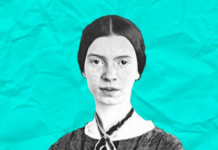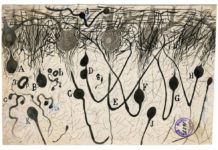How Our Ancestors’ Trauma May Influence Who We Are
In this blog post, Dale M. Kushner explains how the field of epigenetics can illustrate the role of ancestral and transgenerational trauma in shaping our...
Storytelling Therapy for Trauma and Bullying
A study out of the University of Buffalo explores the use of Narrative Exposure Therapy to treat youth PTSD and substance abuse. “Trauma is...
How are Professional Artists Similar and Different from People Diagnosed with Schizophrenia?
People "who are prone to psychosis" in its most "extreme" forms, such as delusions, hallucinations, and disorganized thought, have been found to also show...
Thinking of Schizophrenia as Normal Can Be Helpful
Daniel Helman had a psychotic episode at age 20, but has been off all psychiatric medications since 2006 and is now 44. In Schizophrenia...
Dickinson’s Legacy is Incomplete Without Discussing Trauma
In this piece for The Establishment, physician Isabel C. Legarda explores the possibility that the poet Emily Dickinson may have been a survivor of sexual violence.
"Absent...
A Glimpse Into the Brain, Drawn by the Father of Neuroscience
From The New York Times: A new exhibit at the Grey Gallery at New York University presents 80 hand-drawn renderings of the brain by Santiago...
It’s Easy to Get Caught Up in Constructing Our Selves
In this video for Aeon, clinical psychologist Daniel Brown discusses the ways that the construction of a fixed selfhood can limit the possibilities of our...
“’Yalom’s Cure’ is a Meditative Immersion into Leading a Psychologist’s Life”
The LA Times reviews a new film about Irvin David Yalom, existential psychologist, emeritus professor of psychiatry at Stanford Unversity. "’Yalom's Cure’ dispenses an...
Re-telling Our Stories: Liberation or Re-oppression?
-When we "re-narrate" our own stories and identities, it may be an opportunity for either liberation or re-oppression.
How an Ancient Singing Tradition Helps People Cope With Trauma
From YES! Magazine: Lament singing, an ancient tradition once observed for spiritual purposes during funerals, weddings, and times of war, is now seeing a revival in...
The Healing Power of Photographs
In this piece for Psychiatric Times, Dr. Harold J. Bursztajn reflects on the therapeutic value photographs had during the Holocaust and continue to have today.
"In...
Using Paint, Pen on Paper or Song to Revisit Trauma
From The Conversation: The literary, visual, and performing arts can play an important role in helping people process trauma, especially for those who have difficulty...
Using Shakespeare to Ease the Trauma of war
From The New York Times: Learning Shakespeare can be a valuable way for veterans to begin to understand and heal from the trauma of war.
Article →
Webinar Discussion – Rethinking Madness
A free recording of last week's webinar anchored to Phil Borges' Crazywise, a documentary exploring alternative approaches to mental health, is now available. Over 4,000 people...
Sunday Music: “Even Out of Severe Depression There Comes Insight”
Maria Popova provides some excerpts about music, madness and therapy from the new book, Joni Mitchell: In Her Own Words, from the iconic Canadian...
Using Psychodrama to Teach Psychotherapy
-Sharon Packer describes the therapeutic impacts of getting a patient to play multiple roles, presenting evidence to prove and disprove beliefs about himself and his experiences.
The Enduring Myth of the Mad Genius
From Wellcome Collection: It has long been assumed that great writers and artists must be touched by madness. However, no link between artistic talent and...
The Art of Madness
In this piece for The Paris Review, Cody Delistraty details the French painter Jean Dubuffet's efforts to collect artwork made by people deemed mentally ill...
Birthday Letter: Sylvia Plath and “Daddy”
In this piece for The Paris Review, Belinda McKeon analyzes the poetry and letters Sylvia Plath wrote in the few months just before her suicide.
“Mindfulness at Risk of Being ‘Turned into a Free Market Commodity’”
The Guardian reports growing concerns from the Buddhist Society conference: “Jon Kabat-Zinn, who created the Center for Mindfulness in Medicine at the University of Massachusetts medical school, warned last week that some people feared a ‘sort of superficial ‘McMindfulness’ is taking over, which ignores the ethical foundations of the meditative practices and traditions from which mindfulness has emerged, and divorces it from its profoundly transformative potential.’”





















